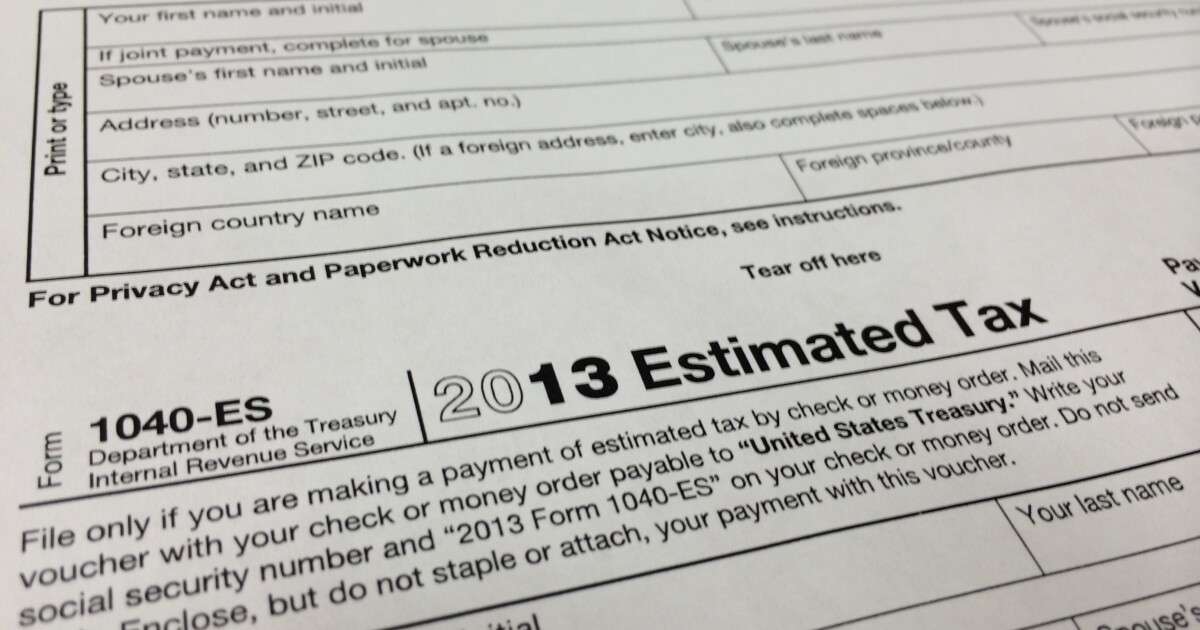

WASHINGTON (AP) — It’s that time of year when throngs of taxpayers are buckling down to file their income tax returns before Tuesday’s filing deadline. Many often pay to use software from private companies such as Intuit and H&R Block.
Almost one-quarter of Americans wait until the last minute to file their taxes.
There could be a new, free option in future years. The IRS has been tasked with looking into how to create a government-operated electronic free-file tax return system for all. But that doesn’t sit well with the big tax-prep companies.
The idea has been batted around and hotly debated for a long time. Congress now has directed the IRS to report in on how such a system might work.
The order came as part of the $80 billion infusion of money for the tax agency over the next 10 years under the Democrats’ flagship climate and health care measure, known as the Inflation Reduction Act, that President Joe Biden signed last summer. It gave the IRS nine months and $15 million to report in on how it might implement such a program and how much it would cost.
Next month, the IRS will release the first in a series of reports looking into how it might be done.
The possibility of an electronic free-file system operated by Washington is being celebrated by some taxpayer advocates who for years have said that would reflect good governance and well serve taxpayers. Critics voice skepticism about the IRS taking on the dual roles of both tax collector and tax preparer, arguing that the new service could create a power imbalance between taxpayers and the government.
Robert Marvin, an IRS spokesperson, said in an email that a key goal of the study is to “look for ways to make filing taxes as easy as possible.”
“It’s important that Americans have choices that work best for them when preparing their taxes, whether it’s by using a tax professional, tax software or free options,” he said.
But big tax preparation companies have millions of dollars to lose if the program comes to fruition. Last year, more than 60 million taxpayers were serviced between Intuit, the parent company of TurboTax, and H&R Block.
Tens of millions of dollars have been spent trying to influence policymakers on the issue, and lobbying data shows that the big tax companies in particular have spent heavily.
An analysis shows that Intuit, H&R Block, and other private companies and advocacy groups for large tax preparation businesses, as well as proponents in favor of electronic free file, have reported spending $39.3 million since 2006 to lobby on “free-file” and other matters. Federal law doesn’t require domestic lobbyists to itemize expenses by specific issue, so the sums are not limited to free-file.
Intuit has spent $25.6 million since 2006 on lobbying, H&R Block about $9.6 million and the conservative Americans for Tax Reform roughly $3 million.
Derrick Plummer, a spokesman for Intuit, said taxpayers can already file their taxes for free and there are online free-file programs available to some people. Individuals of all income levels can submit their returns for free via the mail.
A “direct-to-IRS e-file system is a solution in search of a problem, and that solution will unnecessarily cost taxpayers billions of dollars,” he said. “We will continue unapologetically advocating for American taxpayers and against a direct-to-IRS e-file system because it’s a bad idea.”
Starting in 2006, an agreement between the IRS and some commercial tax preparation companies, known as the Free File Alliance, prevented the IRS from creating its own free tax return filing system. In exchange, tax preparation companies agreed to provide free services to taxpayers making $73,000 or less.
The provision that barred the IRS from exploring a free-file system expired in 2019, but the Free File Alliance agreement to provide free services for low-income taxpayers remains in effect.
Ariel Jurow-Kleiman, a tax law professor at Loyola Law School, and the New America think tank have been selected by the IRS to conduct the congressionally mandated study for the agency. Jurow-Kleiman said their mandate is “evaluating the feasibility, approach, schedule, cost, organizational design, and IRS capacity to deliver a possible direct e-file system.”
But she has faced pushback from Republicans who say she does not fit the law’s requirement that an independent third party assess what it would take to deliver a direct file program.
Rep. Jason Smith, chairman of the House Ways and Means Committee, sent a letter to the IRS in March questioning Jurow-Kleiman’s ability to be an independent reviewer, saying her work indicates “a clear preference for an expansive government-run system.”
Smith, R-Mo., said the selection of Jurow-Kleiman and New America shows that “the Administration has already predetermined that a government-directed e-file system should exist regardless of what might be found in a truly nonpartisan, independent, third-party review.”
Jurow-Kleiman said the GOP pushback to her selection was based on an unpublished draft of an article about tax compliance costs and that none of her writings have “addressed the questions that we are assessing in the feasibility study.”
Molly Martin, director of strategy at New America, referred requests for comment to the IRS, saying the organization “is still working on its report.”
David Williams, at the right-leaning, nonprofit Taxpayers Protection Alliance, says the “government preparing taxes is problematic.”
“The taxpayer is looking for the biggest refund possible, but for the IRS that’s not their job to look for the biggest refund for filers,” he said. “We’re concerned about that conflict of interest, but also really the ability of the IRS to do this.”
To Gabriel Zucker, who helped create the tool to help families access the Advance Child Tax Credit during the pandemic, successfully setting up a free-file program is possible. “It is a really great way for government to better serve people,″ said Zucker, associate policy director for tax benefits at Code for America.






